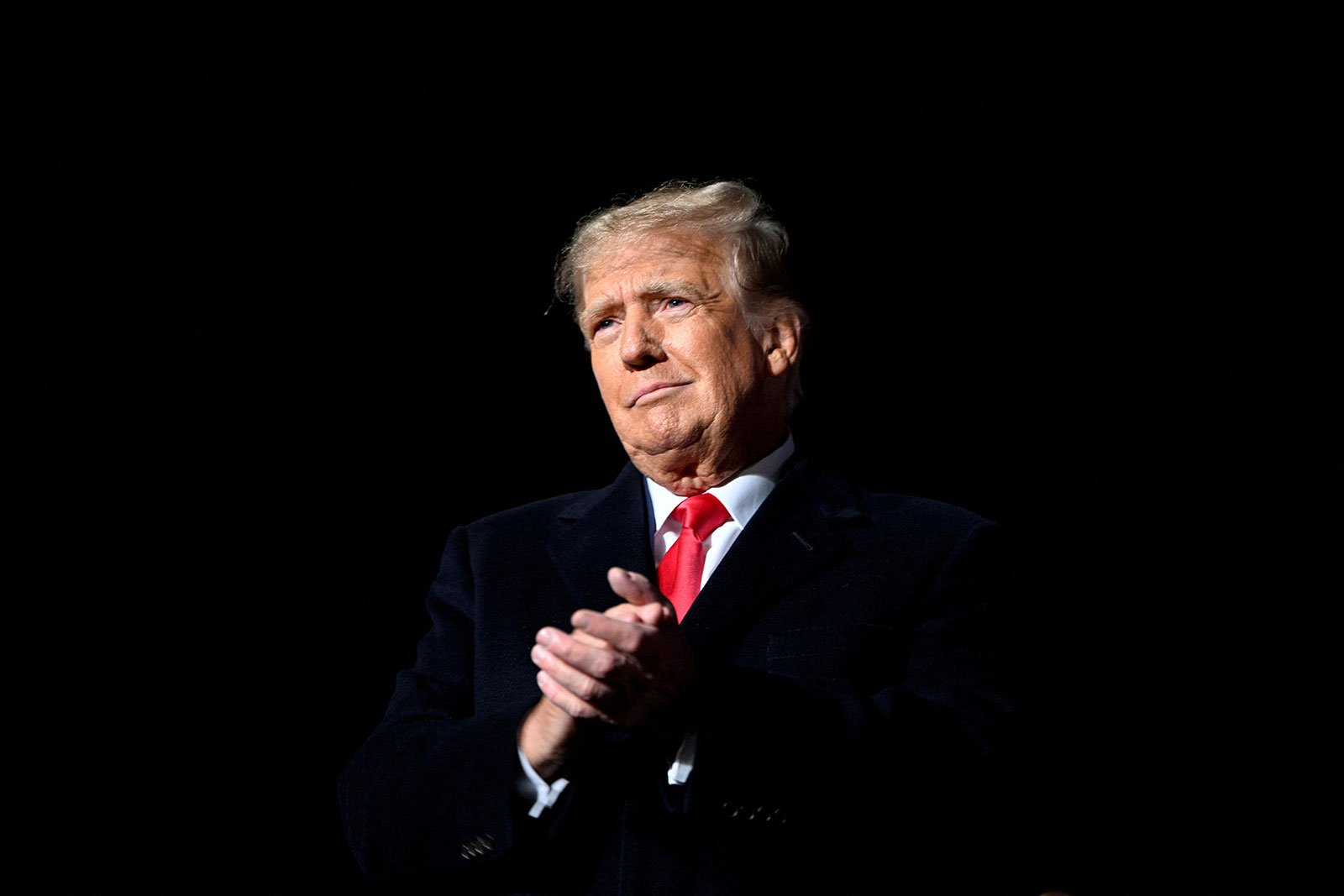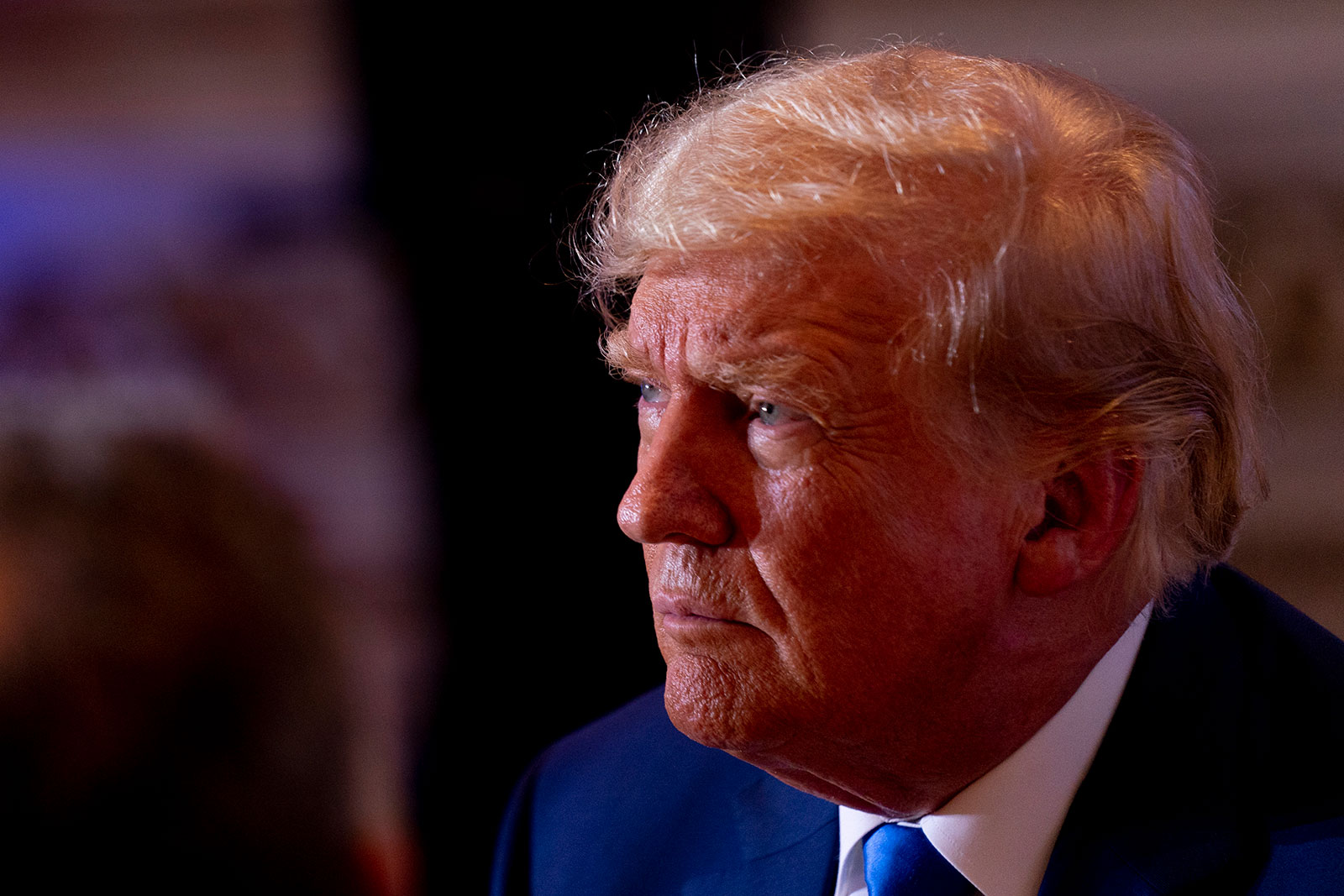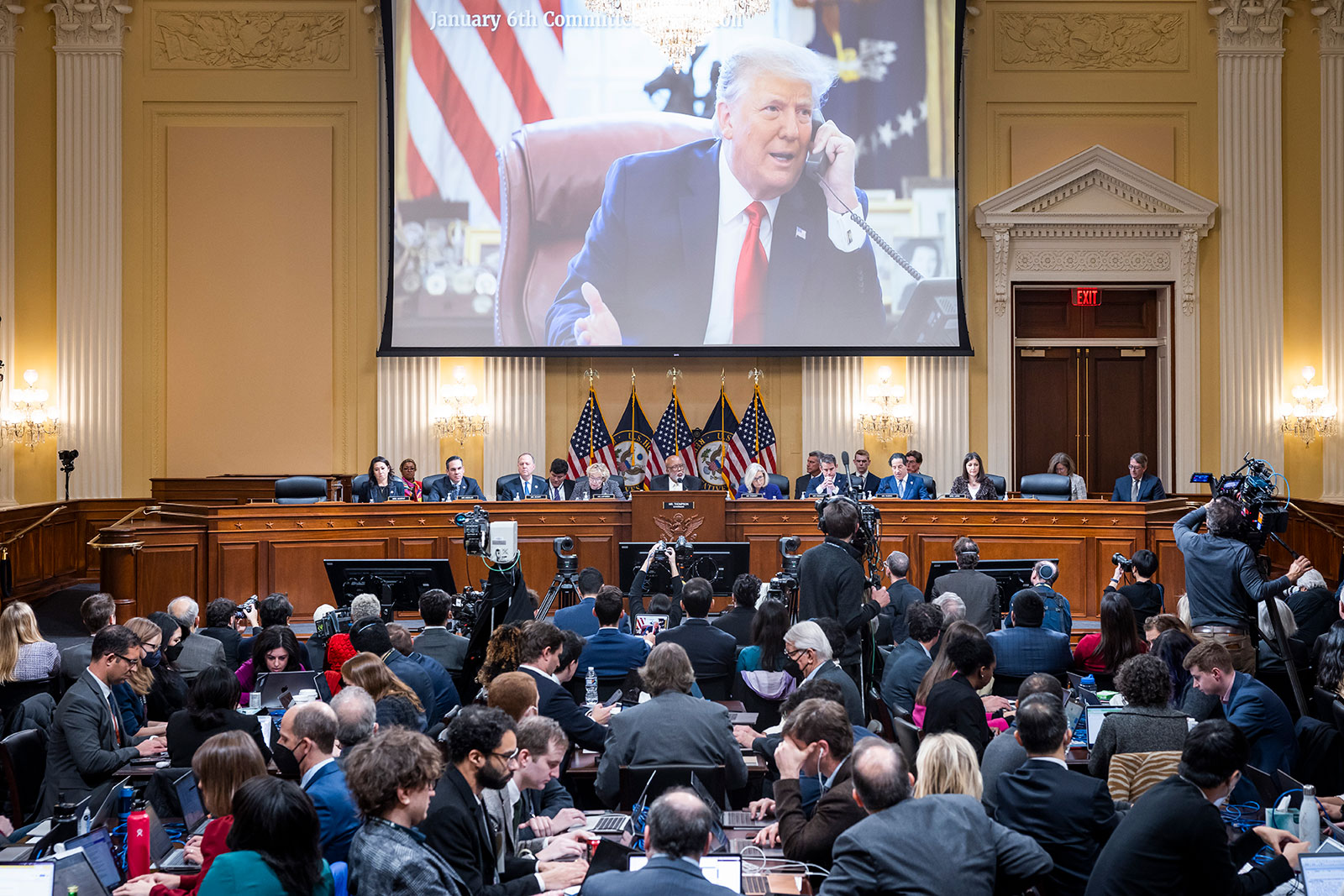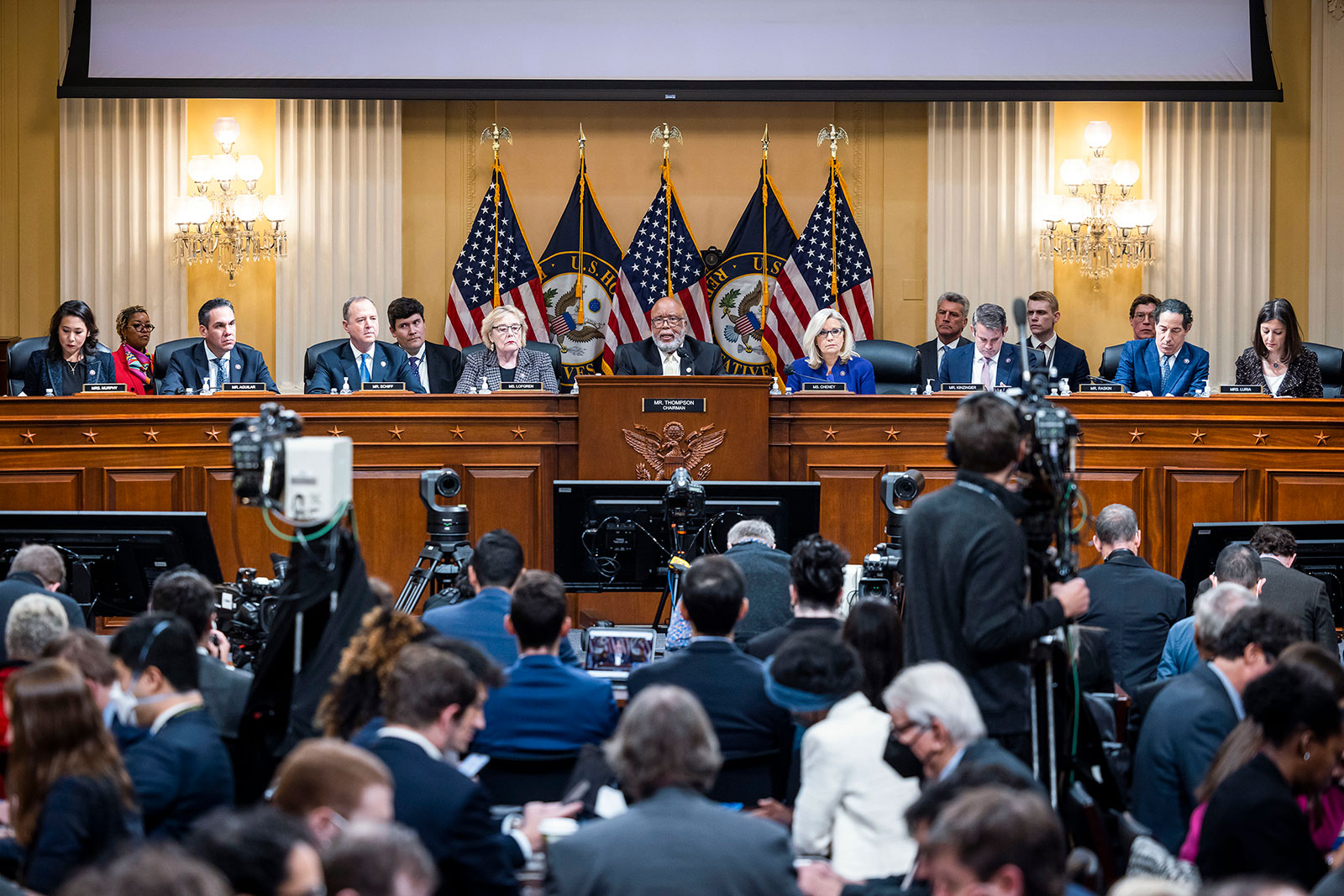
Jan. 6 committee to release final report today
Analysis: Will Trump be charged with a crime?
From CNN’s Stephen Collinson

With its mic drop finale, the House committee investigating the US Capitol insurrection left a fateful question hanging over Washington, Donald Trump and the 2024 presidential campaign: will the ex-president be charged with a crime?
The committee announced in its final public meeting on Monday it was recommending to the Justice Department that Trump be prosecuted on at least four charges, carefully matching the panel’s catalog of violence, lies, insurrection and dereliction of duty up to and on January 6, 2021, with specific legal statutes.
Yet the panel, despite delivering what it called a “roadmap to justice,” has no power to try Trump and its decisions are not binding on the Justice Department.
The DOJ has its own investigation and faces prosecutorial decisions that require a higher bar than the committee’s political gambits. The potential charges concerned also have little case law precedent.
And while both Attorney General Merrick Garland and the House committee have long argued that every American should be subject to equal justice, the gravity of indicting an ex-president and current White House candidate who has already used violence as a political tool means the department’s dilemma is among the most fateful in American history.
More broadly, the committee has now sketched the most urgent framing of a perennial question about Trump’s riotous careers in business and politics: Will he ever face accountability for his rule-breaking conduct?
The question is especially acute given that the norm crushed this time almost toppled US democracy.
Read the full analysis here.
The committee referred Trump to the DOJ for prosecution on multiple criminal charges. Here’s what that means.
From CNN’s, CNN’s Jeremy Herb, Zachary Cohen and Marshall Cohen

For months, the Jan. 6 committee went back-and-forth over whether it would refer former President Donald Trump to the Justice Department for criminal prosecution. On Monday, the committee didn’t equivocate.
The committee referred Trump to the DOJ on at least four criminal charges, including:
- Obstructing an official proceeding
- Defrauding the United States
- Making false statements
- Assisting or aiding an insurrection
The panel said in its executive summary that it had evidence of possible charges of conspiring to injure or impede an officer and seditious conspiracy.
So what is a criminal referral? A referral represents a recommendation that the Justice Department investigate and look at charging the individuals in question. The House committee’s final report – to be released Wednesday – will provide justification from the panel’s investigation for recommending the charges.
In practice, the referral is effectively a symbolic measure. It does not require the Justice Department to act, and regardless, Attorney General Merrick Garland has already appointed a special counsel, Jack Smith, to take on two investigations related to Trump, including the Jan. 6 investigation.
But the formal criminal referrals and the unveiling of its report this week underscore how much the Jan. 6 committee dug up and revealed Trump’s efforts to overturn the 2020 election in the lead-up to Jan. 6. Now the ball is in the Justice Department’s court.
Committee Chairman Bennie Thompson, a Mississippi Democrat, said during Monday’s meeting that he has “every confidence that the work of this committee will help provide a road map to justice, and that the agencies and institutions responsible for ensuring justice under the law will use the information we’ve provided to aid in their work.”
After the panel’s meeting, Thompson told CNN that the evidence that supports the panel’s decision to refer Trump to the DOJ is “clear,” adding that he is “convinced” that the department will ultimately charge Trump.
CNN’s Tierney Sneed contributed reporting to this post.
What to look for when the Jan. 6 committee report is released
From CNN’s Annie Grayer
The final report the House select committee investigating the Jan. 6, 2021, attack is set to release Wednesday launches a new era for criminal investigators, politicians, and members of the public who have been eager to see the nuts and bolts of its work.
Here’s what to watch for:
Detail on possible obstruction of the investigation
In the summary of its report released earlier this week, the panel revealed it is aware of “multiple efforts by President Donald Trump to contact Select Committee witnesses,” adding that DOJ is aware “of at least one of those circumstances.”
The summary released Monday also claimed the panel has a “range of evidence suggesting specific efforts to obstruct the Committee’s investigation.” That includes concerns that attorneys paid by Trump’s political committee or allied groups “have specific incentives to defend President Trump rather than zealously represent their own clients.”
Details of Trump’s effort to visit the Capitol
The summary details that the panel was ultimately unable to get former White House deputy chief of staff Tony Ornato to corroborate a bombshell moment during the public hearings, in which Hutchinson recalled Ornato describing Trump’s altercation with the head of his security detail when he was told he would not be taken to the Capitol following his speech on the Ellipse.
The committee summary said both Hutchinson and a White House employee testified to the panel about the Ornato conversation. But “Ornato professed that he did not recall either communication, and that he had no knowledge at all about the President’s anger.”
The committee wrote that it “has significant concerns about the credibility of this testimony” and vowed to release his transcript publicly.
Fundraising efforts
In terms of financing after the 2020 presidential election and through the Jan. 6 rallies, the committee says it gathered evidence indicating that Trump “raised roughly one quarter of a billion dollars in fundraising efforts between the election and January 6th.”
“Those solicitations persistently claimed and referred to election fraud that did not exist,” the panel wrote.
Rep. Zoe Lofgren, a California Democrat, has said the panel has evidence that members of the Trump family and inner circle – including Kimberly Guilfoyle – personally benefited from money that was raised based on the former president’s false election claims, but the panel has never gone as far to say a financial crime has been committed.
Read more on what to watch for here.
Takeaways from the Jan. 6 committee’s final public meeting on Monday
From CNN’s Jeremy Herb, Zachary Cohen and Marshall Cohen

On Monday, the January 6 committee released an executive summary of its report, and it plans to release the full report on Wednesday, as well as transcripts of committee interviews.
Here are takeaways from the committee’s final public meeting:
Committee refers Trump to DOJ. The committee referred Trump to DOJ on at least four criminal charges, while saying in its executive summary it had evidence of possible charges of conspiring to injure or impede an officer and seditious conspiracy.
All roads lead to Trump. Committee members repeatedly pointed to Trump’s personal involvement in nearly every part of the broader plot to overturn the 2020 election and focused squarely on his role in the violence that unfolded on January 6. Monday’s presentation was a compelling closing salvo for the committee, which said Trump sought to break “the foundation of American democracy.”
Committee uses video to illustrate case. The committee showed a video montage laying out all of its allegations against Trump, from witnesses saying that Trump was told he lost the election by his aides to the former president’s failure to act on January 6 as the violence at the Capitol was unfolding. The montage went step-by-step through Trump’s efforts to block his election loss, showed how his attacks upended the lives of election workers and played body-cam footage of officers attacked by rioters.
A bipartisan, if one-sided, endeavor. Rep. Adam Kinzinger of Illinois described how his House GOP colleagues were complicit in Trump’s efforts to overturn the election. He highlighted evidence that Trump wanted top Justice Department officials to “put the facade of legitimacy” on his voter fraud claims so “Republican congressmen … can distort and destroy and create doubt” about the 2020 election results.
What the House Jan. 6 committee revealed in the final report summary
From CNN’s Tierney Sneed, Sara Murray, Zachary Cohen, Annie Grayer and Marshall Cohen

The House select committee investigating the Jan. 6, 2021, attack on the US Capitol has concluded that former President Donald Trump was ultimately responsible for the insurrection, laying out for the public and the Justice Department a trove of evidence for why he should be prosecuted for multiple crimes.
The summary describes in extensive detail how Trump tried to overpower, pressure and cajole anyone who wasn’t willing to help him overturn his election defeat — while knowing that many of his schemes were unlawful. His relentless arm-twisting included election administrators in key states, senior Justice Department leaders, state lawmakers, and others. The report even suggests possible witness tampering with the committee’s investigation.
The committee repeatedly uses forceful language to describe Trump’s intent: that he “purposely disseminated false allegations of fraud” in order to aid his efforts to overturn the 2020 election and to successfully solicit about $250 million in political contributions. “These false claims provoked his supporters to violence on January 6th.”
The full report, based on 1,000-plus interviews, documents collected including emails, texts, phone records and a year and a half of investigation by the nine-member bipartisan committee, will be released Wednesday, along with along with transcripts and other materials collected in the investigation.
Here are some key things from the report summary:
Committee referring Trump and others to DOJ: The House committee lays out a number of criminal statutes it believes were violated in the plots to stave off Trump’s defeat and says there’s evidence for criminal referrals to the Justice Department for Trump, Trump attorney John Eastman and “others.” The report summary says there’s evidence to pursue Trump on multiple crimes, including obstruction of an official proceeding, conspiracy to defraud the United States, conspiracy to make false statements, assisting or aiding an insurrection, conspiring to injure or impede an officer and seditious conspiracy.
Trump’s false victory was “premeditated”: The committee outlines 17 findings from its investigation that underpin its reasoning for criminal referrals, including that Trump knew the fraud allegations he was pushing were false and continued to amplify them anyway.
Trump’s belief that the election is stolen is no excuse, lawmakers say: Sources familiar with Trump’s legal strategy in the Justice Department probe have told CNN that his attorneys believe prosecutors face an uphill battle in proving he did not believe the election was stolen despite being told as much by senior members of his own administration.
In making its case for a Justice Department prosecution of Trump, the House committee took aim at that possible defense.
Several members of Congress being referred to House Ethics Committee: The select committee is referring several Republican lawmakers who refused to cooperate with the investigation to the House Ethics Committee. House Minority Leader Kevin McCarthy, as well as Reps. Jim Jordan of Ohio, Scott Perry of Pennsylvania and Andy Biggs of Arizona, could all face possible sanctions for their refusal to comply with committee subpoenas.
Trump and others may try this again, committee warns: The summary’s section outlining the referrals makes a case for why the Justice Department’s prosecutions should extend beyond the rioters who physically breached the Capitol.
The committee says that Trump “believed then, and continues to believe now, that he is above the law, not bound by our Constitution and its explicit checks on Presidential authority.”
Source: https://www.cnn.com/politics/live-news/jan-6-committee-final-report/index.html















